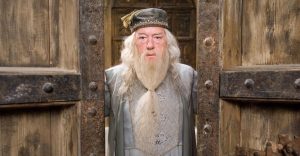Game of Thrones: 10 Things That Make No Sense About The Faith Militant

As Game of Thrones progressed, the Seven Kingdoms fell further and further into chaos. Of course, given the world that the series depicts, it’s not surprising that a variety of actors would rise up to take advantage of the decline in order and stability. One of these groups was the faction known as the Faith Militant, led by the grizzled and unkempt old man known only as the High Sparrow.
They soon managed to forge some unlikely alliances, including a particularly notable one with none other than Cersei Lannister herself. Despite their eventual prominence in the story, there’s still quite a lot about this organization that remains unclear.
10 Why Cersei Thought Allowing Them To Exists Again Was A Good Idea (Considering They Were Disbanded For Fighting The Throne)

On one level, it makes sense that Cersei would try to use any group that presented itself to her own advantage. Unfortunately, she made a catastrophic mistake in thinking that the Faith Militant would be in any way a reliable ally. In fact, they end up turning thoroughly against her, even going so far as to turn her own son. While Cersei isn’t exactly known for her wise political decisions, even for her it’s a mistake truly staggering in its folly.
9 Why The Uprising Against The Throne Didn’t Lead To A Targaryen Crackdown On The Whole Faith, Since They Didn’t Really Follow It

It’s well-known that the Faith Militant have played a role in other periods of Westeros history. In fact, they once became so powerful that they threatened the stability of the Targaryen dynasty itself. Given the fact that the Targaryens were known for being vengeful and not being particularly devout in their observations of the Faith, it doesn’t make a lot of sense that they didn’t just abolish it altogether (or at least undertake a more strenuous form of crackdown).
8 Why The Rest Of The Regular Septons And Septas Put Up With It

As soon as they begin to rise to power, the Faith Militant proves that it isn’t exactly the most tolerant or congenial group. Nor, it should be said, does it seem to have a very substantial following outside of its core supporters. This makes the reasonable viewer to wonder: why, exactly, did the other septons and septas who were the main members of the Faith put up with these interlopers who were trying to change everything about their own religion?
7 Why No One Tried To Stop Their Insanity Sooner

Sometimes, one has to wonder what, exactly, the rulers of Westeros are doing. For example, they seem to continually turn a blind eye to catastrophes unfolding around them. Take the Faith of the Seven. It becomes clear pretty quickly that they are going to pose a danger not just to the great powers in Westeros, but perhaps to the very fabric of the entire society itself.
One would like to think that at least someone at some level of the government would have done the bare minimum to stop them before they became as powerful as they did.
6 Why The Small Folk Seemed To Like Them

One of the things that sets the Faith Militant apart is the fact that they seem to be particularly popular with the small folk of King’s Landing (and, one presumes, elsewhere). While this makes a little bit of sense, especially given how oppressed they’ve been throughout the last few years of conflict and civil war, it’s not as if the Faith Militant have been all that great to the commoners. After all, they went after their pleasures before they turned their fire on the nobles and the powerful.
5 What Happened To The Rest Of Them After Cersei Destroyed The Great Sept

Cersei’s destruction of the Great Sept of Baelor was one of the most striking, and terrifying, moments in the history of the show, as well as in television as a whole. Of course, the High Sparrow himself was one of the victims of this conflagration, as well as several other high-ranking members of the organization. However, what remains unclear is what exactly happened to the rest of them, particularly since they seem to utterly disappear from the rest of the series.
4 What Exactly Was Their End Game?

Despite the fact that the Faith Militant became a very powerful force in the affairs of the Seven Kingdoms, their motivations and, just as importantly, their final goals, still remain unclear. Did the High Sparrow really think that he was going to be able to maintain his power? For that matter, it sure does seem as if he was in many ways just as likely to fall into corruption as the men and women that he sought so assiduously to bring down.
3 Why, Exactly, Is Homosexuality Forbidden By The Faith Militant?

One of the most striking, and frustrating, things about the Faith Militant is their absolute intolerance of homosexuality. However, there’s no real explanation, either in the series or outside of it, for why this should be the case.
It makes even less sense when one considers that, as a fantasy, it was entirely possible for the series to create a religion that was at least a little more accepting and tolerant than many of its counterparts in the real world.
2 Why The High Sparrow Refused To Believe Cersei Had Something Planned

As the trial unfolds in the Great Sept, only Margaery seems to understand that Cersei has something planned. For his part, the High Sparrow absolutely refuses to believe it, seemingly believing that he has at last outwitted her. This is a truly staggering bit of hubris on his part, and it frankly doesn’t make a lot of sense that this man, who has already proven himself a savvy political operator, would in the end commit such an epic blunder.
1 Why No One Seemed To Notice The High Sparrow Wanted Political Power Just As Much As The Rest Of Them

It’s a rule in Westeros that no one is immune from the seductions of power. In fact, the entire series seems to be a confirmation of the maxim that absolute power corrupts absolutely. This is as true for the High Sparrow as it is anyone else. What doesn’t entirely make sense, however, is how no one in King’s Landing seemed to notice that this man, who claimed to be a devout servant of the Faith, was in fact just the same as any of the other power brokers of Westeros.
About The Author

















